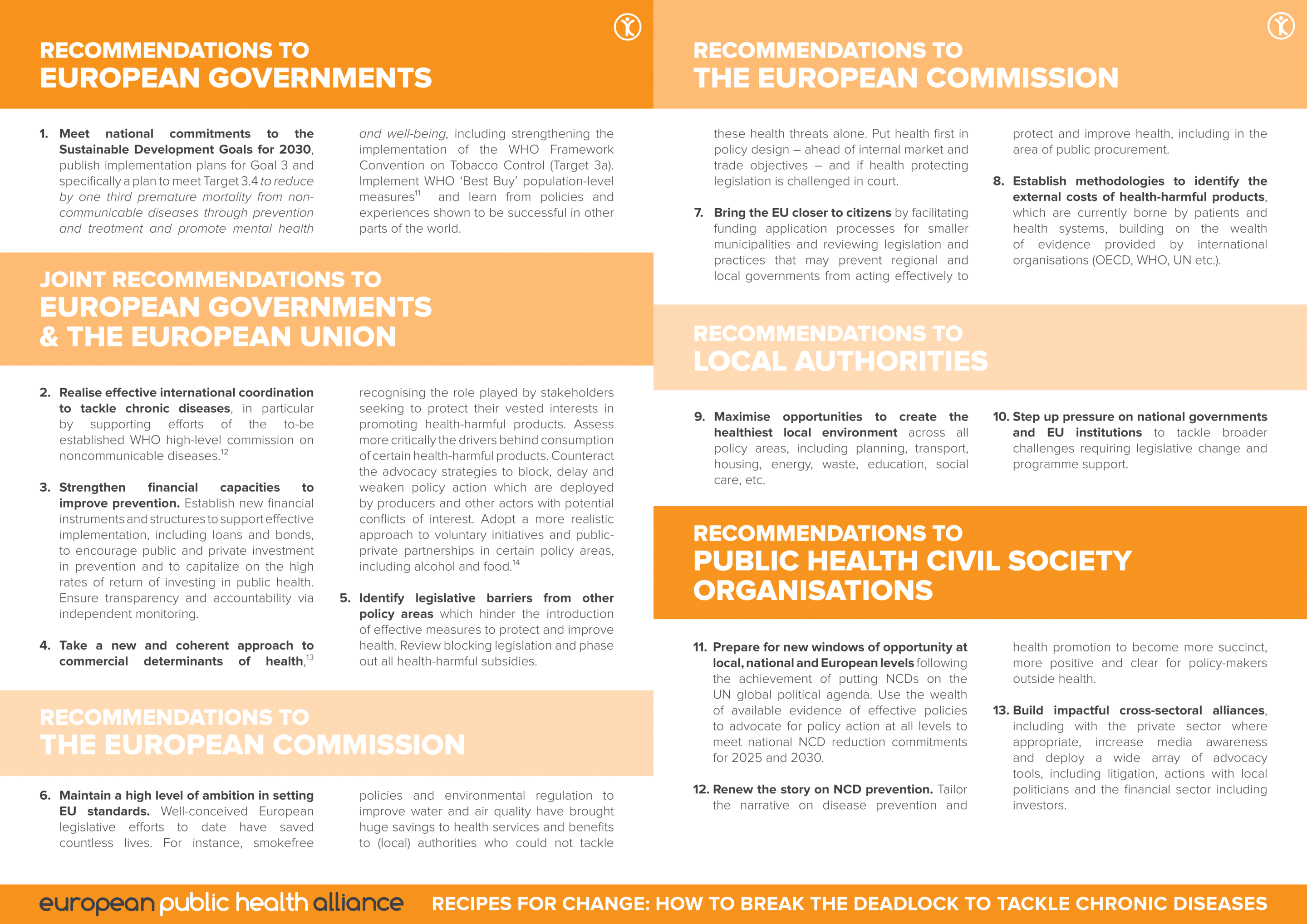Recipes for Change: How to break the deadlock to tackle chronic diseases
This statement is EPHA’s interpretation of key messages from its annual conference: “Make Health Your Business: People, Power, Money and Policies” held on 7 September 2017 in Brussels. It does not necessarily reflect the view of speakers, and cannot in any way be attributed to them.
A challenge to European governments, EU Institutions and civil society
Thanks to the evidence base compiled by the WHO and OECD, European policy makers are well aware of WHAT types of policies are effective in reducing the growing burden of non-communicable chronic diseases (NCDs).
Policy-makers also know WHY action is needed:
- Prosperity, economic development and well-being cannot be achieved without addressing chronic diseases.
- NCDs have devastating individual and economic impacts: they are Europe’s biggest killers; they are responsible for €700 billion in EU healthcare spending annually; and attributable premature deaths result in a 0.8% loss in EU GDP per year.
- Effective public health policies could prevent the onset of many chronic diseases. The WHO estimates that up to 80% of all heart disease, stroke and type-2 diabetes and 40% of cancers could be prevented.
- Public health policies also have excellent rates of return on investment. With a median rate of 14 to 1, one Euro invested yields 14 in return for the economy. Overall, policies which lead to a gain in life expectancy also bring huge macroeconomic gains: every additional average year of life expectancy is worth a boost to GDP of up to 4%.
- 70% of Europeans want the EU to do more for health, according to the most recent Eurobarometer survey. 70% of the population want to see more European action for health.
Despite the clear economic case for action, awareness is not being converted to policy action and Europe is no longer a global leader in terms of implementing innovative and ambitious policies to prevent NCDs. As a result of inaction, chronic diseases in Europe continue to rise.
This is why EPHA’s 2017 annual conference set out to discuss HOW to enable change and break the deadlock to tackle chronic diseases. Here are the resulting recommendations.

